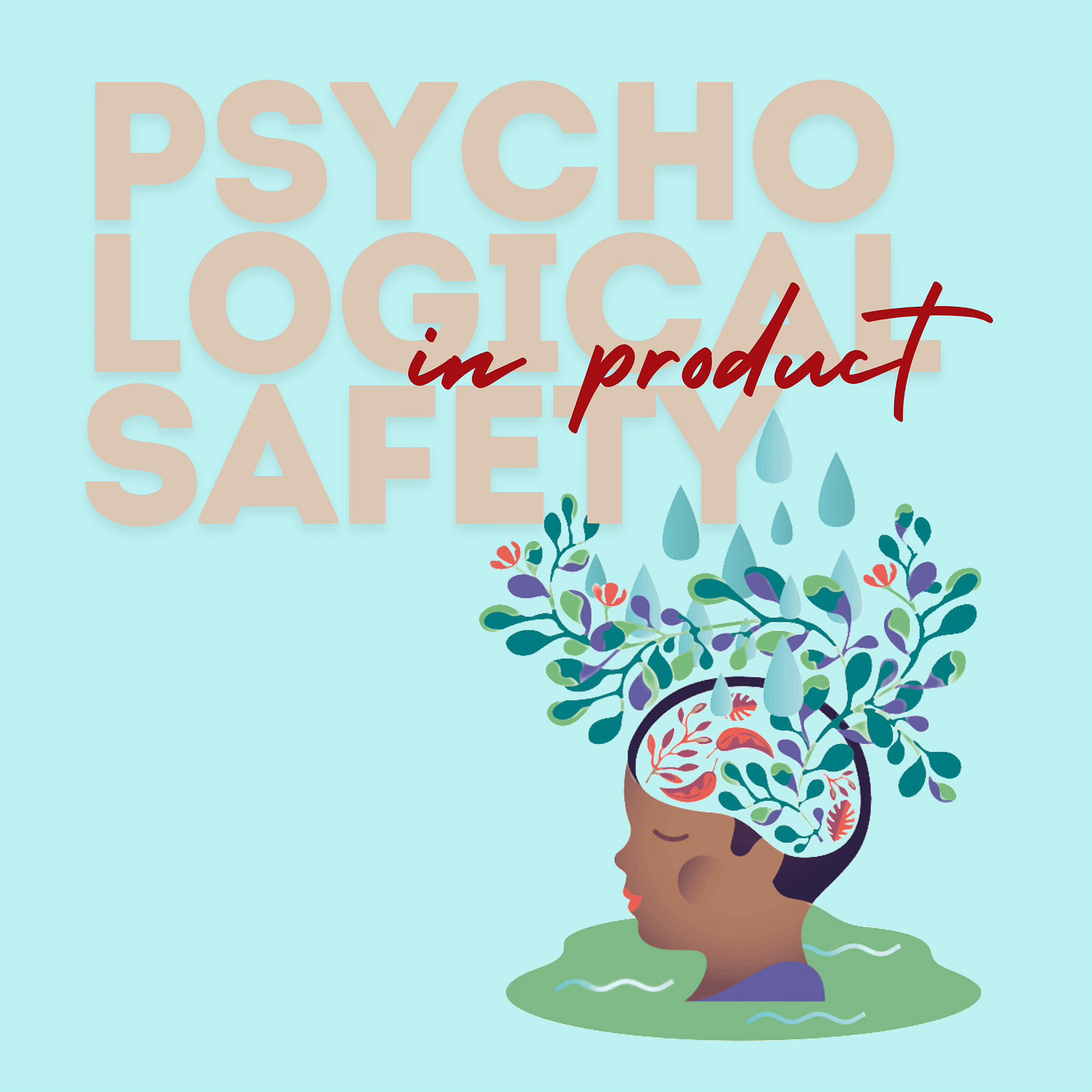PSYCHOLOGICAL SAFETY: IN PRODUCT
We need to know we can fail safely, create safely in order to feel safe as product people
Many people I speak to, those looking for advise on dealing with imposter syndrome or just wanting to enhance their careers tell me a similar story. I know my stuff, I have been doing product for several years, some even for decades such as myself. BUT I STILL am having to deal with imposter syndrome. This comes from many different aspects of our discipline and I have spoken at length in other articles about the impact of ProductTech as an industry and the rise of the Product Guru having a part to play in this but from what I’ve seen first hand and from my many conversations the lack of psychological safety many of us feel in product is also cause of many an imposter syndrome impacted PM.
Let’s look back on a bit of history of our profession as I often like to do for context….. Years ago before ‘BIG DATA’ came along product professionals were asked to and applauded for using their GUT instincts. From talking to customers and knowing from that contact what the right next best thing to do for their product should be. Now don’t get me wrong, we always had data, we would do qualitative research or ethnographic research to know WHAT questions needed to be asked, and then quantify this with surveys to get data to drive some big decisions - but if you ask any of us OGs you will get the same story - we did not let data drive ALL the decisions and were given space and time to use our instincts.
When the world of data, analysis and the tech around experimentation down to the finest of details took over, product methodology and decision making fundamentally changed, some would argue for the better but there was also a downside to this in my opinion.
The art of decision making took a hit. With this we saw a demise in the need for courage for risk taking. Find the data > use the data > rely ON THE DATA …..
So when something goes wrong, or the decisions made don’t have the results anticipated its not uncommon for Product people to find themselves in troubled and perhaps unfamiliar water. As leadership has come to expect a level of inevitability in time and money spent and return on that investment and if and when this does not go according to plan familiar patterns are put under duress. We often discuss as product leaders providing space to fail safely but many don’t think too long about what this actually means - what this actually looks like.
Shining a light on great outcomes, celebrating success, championing your team and giving them a platform to ensure their part played is well known and understood as leadership behaviour. However, taking the time to sit alongside them for failures is not so easy, and often we can look to protect ourselves from failures by attempting to distance ourselves from them, but have a think about the message this gives or the impact to your team. They are exposed without your ground cover they can then end up being held singularly answerable for their decision or recommendations that did not yield the expected results. To create psychological safety from the ground up we must as leaders create the SPACE TO FAIL SAFELY and the ONLY way to do that is for us to OWN this decision and subsequent failure alongside our teams. This is not about protecting them from the outcome, or avoiding learning from the mistake but instead makes it possible for them to continue to test forward without fear of retribution.
Clearly there are many other ways to create an environment of Psychological safety the above IMHO is the most critical and intrinsically linked to the role of product but below are a few leadership tips that can be applied to more roles:
Be vulnerable with your team, don’t shy away from being open about your own flaws
Create a sense of partnership between yourself and each of your team members, you know what you know, they know what they know
I once got pulled up for over indexing in the softer skills of line mgt - NO SUCH THING - you cannot over lean into the human side of leadership IMHO
Make sure everyone has the space and the time for their opinions to be heard
Create the forum for healthy debate
….and one more time make how you handle failure a BAU practice




